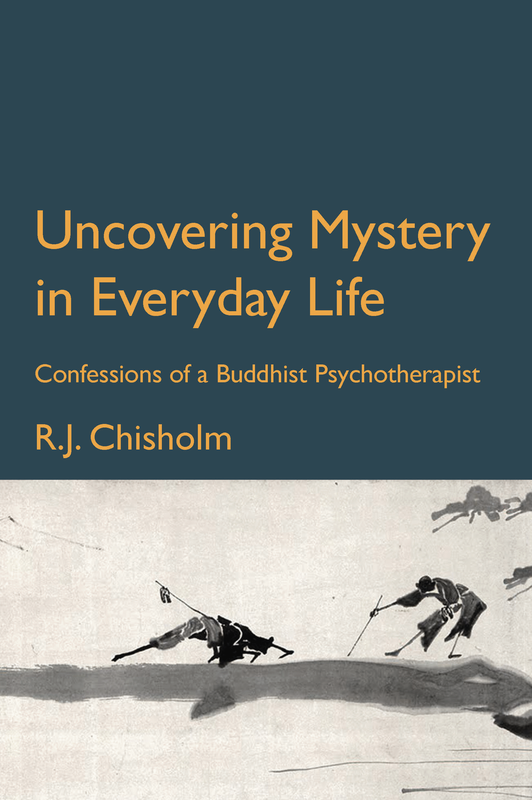|
Imprint: Triarchy Press
Published: March 2022 132pp. ~ 15.2 x 22.9 cm ~ Paperback ISBN: 978-1-913743-48-2 Price: £15 Tags: Psychotherapy, Buddhism Buy the paperbackBuy the pdf (£13)Click the 'Buy' button below. At checkout, click No postage on ebooks from the dropdown.
After paying, we will send an immediate confirmation and email your ebook file within 24 hours. ePub ISBN: 978-1-913743-49-9
version: bookmarked pdf (pdf text cannot be edited, printed or copied - email us if you need this capability.) Readership
Written for anyone training or practising as a psychotherapist, or considering taking up therapy as a client, Uncovering Mystery in Everyday Life is also for anyone interested in the existential wonder of being human.
Read more:
Other Triarchy Titles you might love:
"Psychotherapy is the art of encounter. The encounter between therapist and client is, of course, central to its process, but so too is the client’s encounter with life; with the significant others in their life, with their own nature in all its twists and wrinkles, and, ultimately, with their own mortality and that of those they love. Too often, these encounters are avoided, or at least only partial, but through the therapeutic process they open up to something much more raw and real.
In this book, Chisholm leads us through a series of encounters based on his work with clients, giving us a glimpse of the intimate world of the therapy room from within the frame of the psychotherapist. By offering a collection of stories which draw on his years of experience in the role, he describes the minutiae of process which these therapeutic meetings involve and, as he does so, shares his own thought processes: the importance of listening with open attention and not foreseeing the outcome, and the complex dance between intuition and not knowing." From a review by Caroline Brazier in Self & Society ~ Read the full review |
Uncovering Mystery in Everyday Life: confessions of a Buddhist psychotherapist
RJ Chisholm (Triarchy Press) "The great psychoanalyst and Buddhist Nina Coltart once said of attention that it is not a cluttered concept – a statement that holds in its simplicity a nugget of the intertwining of psychotherapy and Buddhism. Both require and enhance attention, both do their magic by attention, both draw on an attention that is honed by practice and mindfulness and neither gives up their mystery easily. But there are many other points of confluence that create a mandala of challenge, care, symbolism, love and resilience. So, as therapists, how do we draw on a centuries-old dharma (teaching), a transcultural philosophy and a difficult yet profoundly rewarding discipline? One way would be by reading this book, which, despite the title, is less a confession and more a gentle, rational introduction to the ways in which one Buddhist psychotherapist uses his practice and Buddhist knowledge to help others in his work. Through the classic use of case study, Chisholm shows the reader how he uses Buddhist dharma and practice to shine a light on the ‘unfathomable mystery’ of psychotherapy and people’s lives, in steady, unpretentious and caring ways. He makes clear his intention is not to convert the client, far less to offer ‘techniques’ – however appealing so-called ‘McMindfulness’ may be – but to evoke a wisdom that continues to offer balm and purpose to millions of people in disparate cultures and contexts. Working through examples familiar to practitioners such as grief, trauma, self-harm and depression, the vignettes lightly fold in Buddhist teachings in a form that is accessible yet avoids oversimplifying a philosophy and toolbox apposite to 21st-century living." Reviewed by Olivia Sagan (counsellor, psychologist and academic) in Therapy Today, Oct. 2022 Uncovering Mystery in Everyday Life
|

